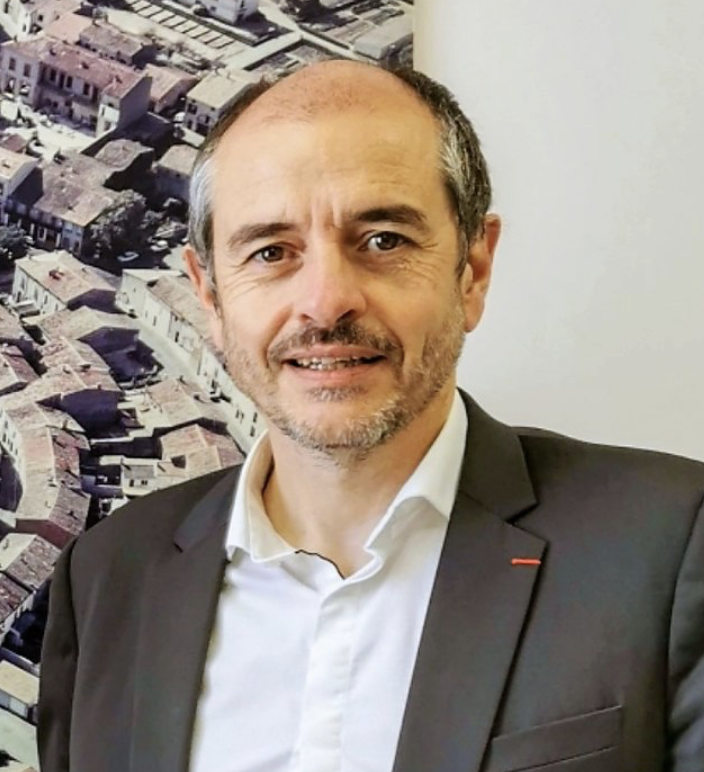An interview with André Viola, vice-president of the National Commission for Decentralized Cooperation and departmental councilor of the Aude
Why should a local authority set up decentralized cooperation with a developing country? What are the advantages for a French community? And for the foreign community?
French local authorities have a long history with international cooperation. They are now recognized as a full-fledged player in French foreign policy and contribute significantly to France’s Official Development Assistance. The international opening of the territories is essential, combining interculturality with the richness of international partnerships and the economic, social and sustainable development of the territories. By taking international action, French local authorities participate in achieving the Sustainable Development Goals (SDGs) set by the United Nations at the global level. This is now a necessity in order to promote a world based on social justice, peace, democracy and the rights of all the planet’s inhabitants, environmental protection…
The international action of the community is an integral part of the development policy of its territory and must be part of a medium and long term policy with clear objectives. It includes decentralized cooperation, strategic international development, support for local actors in international solidarity, international youth mobility, etc. Through their decentralized cooperation partnerships, French local authorities and their partners are enriched by exchanges of experience and best practices at the local level. They promote solidarity actions that are co-constructed and connected to the territory. They strengthen the skills of agents and professionals in the region, to respond to international requests.
As an elected official, are you in charge of one or more decentralized cooperations?
With local authorities in Burkina Faso, Ecuador and Peru, Palestine, Tunisia and Lebanon, the Department of Aude has set up a reference system for actions and exchanges of experience with the 2030 Agenda as common indicators. Social policies, human rights, the fight against climate change, water resource management, environmental protection are some of the themes of decentralized cooperation actions of the Department of Aude. Since the Community of Communes of Piège, Lauragais and Malpère, we have launched a program around sanitation with the town of Foundiougne. These actions will be carried out in collaboration with the Senegalese communes and the Regional Development Agency of Fatick. Exchanges between young people from Aude and Senegal will contribute to the approach to the rational management of water resources
What are the difficulties that a community can encounter
during decentralized cooperation?
The COVID 19 pandemic has forced many local authorities to rethink the way they “do cooperation”. We have had to adapt, postpone or cancel trips or the hosting of foreign delegations, even though they had been planned for a long time. During this period of the pandemic, local authorities have redoubled their efforts and imagination to invent other ways to maintain links with our partners, and to project ourselves in spite of everything to keep these exchanges alive, to imagine actions. These decentralized cooperation actions only make sense if they are part of a sustainable perspective. The projects must not only help to solve current problems but also allow the local populations to include them in the perspectives of long-term development (and very generally in a sustainable vision of development). It is sometimes difficult to measure the “return on investment” of decentralized cooperation. Nevertheless, depending on the size and competencies of the local authority, indicators can be used to estimate the leverage effect of the mobilization of public money by the local authority on all of its international actions, and to report on this to the public.
In the context of climate change, what are the contributions of decentralized cooperation in terms of sustainable management of water resources?
The management of water resources, access to water and sanitation are not only environmental issues but also have consequences in terms of social justice, health and security. The United Nations’ Agenda 2030 makes water a goal in its own right (SDG6).
Decentralized cooperation, which is very active and diversified in this field, makes a concrete contribution, responding to the needs expressed by local partner communities, to provide solutions to
to respond to the challenges posed by climate change, inappropriate use of water, rapid urbanization, and many other issues related to the management of the water cycle. French local authorities have a tool for their projects in the water sector: the intervention framework instituted by the “Oudin-Santini” law (2005) which allows them to devote up to 1% of their water and sanitation resources to international solidarity actions. As a local elected official, I am very attentive to the fact that the 1% objective is reached and to the development of “exemplarity” in the projects that are carried out. I have thus contributed as much as possible to implementing cooperation in the fields of drinking water and sanitation in the communities I have managed.
When does a community decide to call upon an NGO like HAMAP-Humanitaire?
Local authorities have recourse to an operator such as HAMAP-Humanitaire to accompany them and their partners in their journey of exchanges and partnerships of decentralized cooperation. The intervention of the NGO facilitates the implementation of the project by providing methodological support on the methods of intervention, the means of ownership for the community, the specifications, the schedule, etc. In addition, HAMAP-Humanitaire’s support allows us to strengthen the grant-seeking aspect of the project by better identifying the appropriate donors for the project. Based on trust and working relationships, the Department of Aude works with HAMAP-Humanitaire within the framework of two decentralized cooperations in the field of water in Palestine and Tunisia. The commitment of the teams to our community and their knowledge of the problems in the field have allowed us to considerably accelerate the pace of our decentralized cooperation programs.

